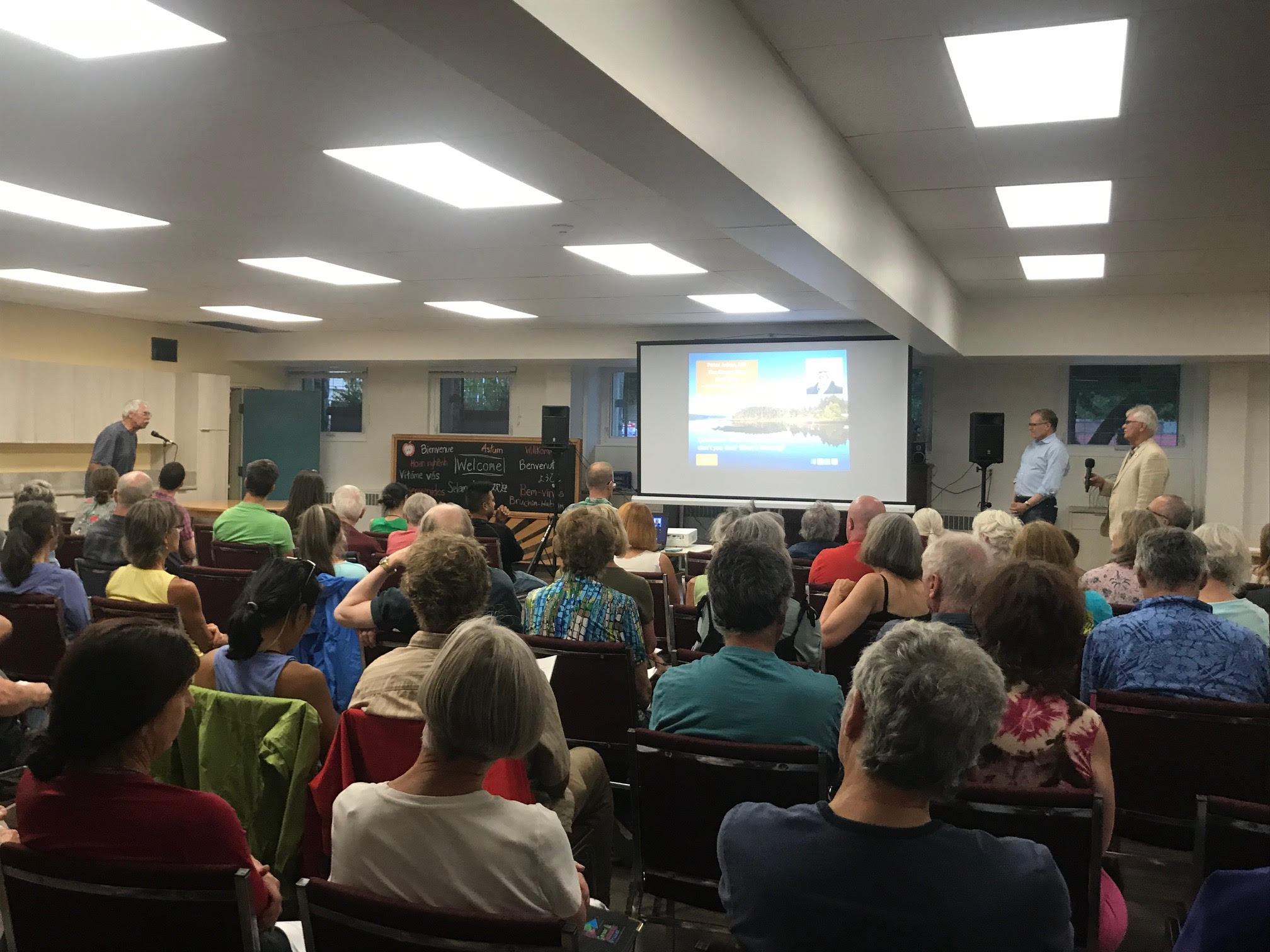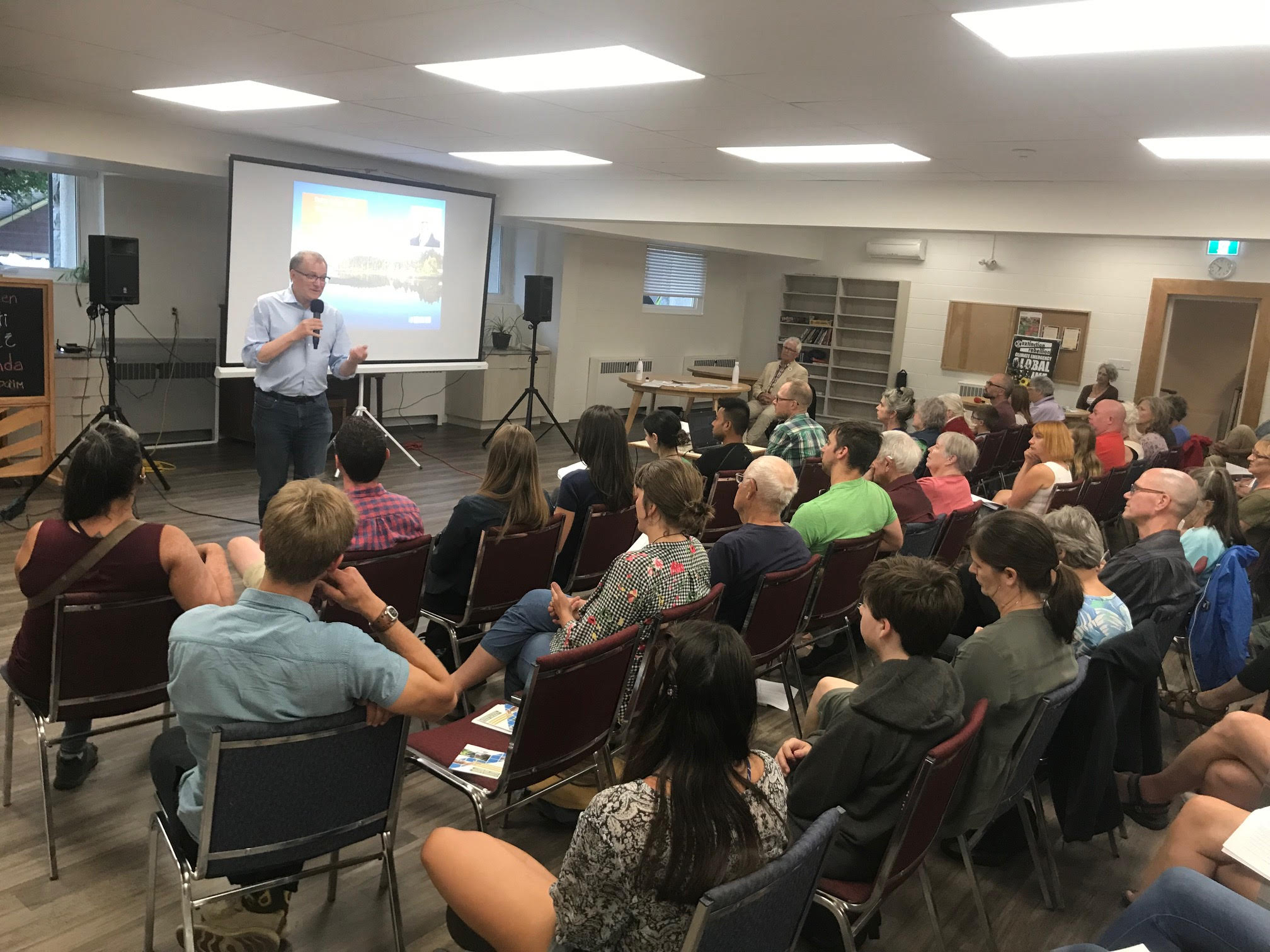Green New Deal — beginning the transition away from fossil fuels
There’s a Federal Election happening in the fall that should be on the minds of all Canadians.
However, there is a bigger problem facing not just Canadians but everyone on the planet — Climate Change.
Wednesday, before a crowd of approximately 100 concerned citizens at the Nelson United Church, Kootenay Columbia NDP MP Wayne Stetski was joined by NDP colleague Peter Julian to discuss his Green New Deal legislation.
The legislation is a call for “an ambitious government-led mobilization to make the investments necessary to stop climate change and profound income inequality.”
“This (Green New Deal) is vastly beyond what (NDP) presented in the 2015 campaign,” Julian told the crowd.
Julian, the MP for New Westminster-Burnaby was responding to a question regarding the NDP’s failed platform during the 2015 election that lost the part numerous seats.
“If fact environmental organizations say this is the best plan that has ever been presented,” Julian added. “And so, this new deal for people goes far beyond the 2015 (NDP) election campaign commitments.”
In April of this year, Julian tabled a motion (M-232) in the House of Commons, calling on Parliamentarians to support a Canadian Green New Deal.
It remains the first and only legislation before the House of Commons advocating for a Green New Deal. The motion is based on the resolution submitted in the US Congress by Representative Alexandria Ocasio-Cortez from New York and Senator Ed Markey from Massachusetts.
Julian said Green New Deal is about saving our planet, while making sure that Canadians, especially workers in carbon-heavy oil and gas industries, are given good job opportunities to find jobs in the new green economy.
He said the Green New Deal will respect agreements, treaties and meaningful reconciliation with First Nations, Metis and Inuit people and must be developed in wide consultation and collaboration with civil society including labour unions, worker cooperatives, academia and businesses.
“These are the kinds of discussions that have to take place, right away . . . with oil and gas workers,” Julian said, adding markets south of the border are starting to lean toward clean energy and away from depending on fossil fuels.
“And that’s how we get there because giving them the means by the way they can transition and keep their jobs in the clean energy sector, they can be supportive of what’s required.”
The meeting in Nelson was the third stop of a trio of Town Hall meetings in the Kootenay Columbia riding. The two NDP MPs held meetings in Monday in Cranbrook and Tuesday in Revelstoke.
Stetski said the time for talk is over.
“We have to start the transition . . . and you have a transition by having a vision or a goal to what the Green New Deal is talking about here,” Stetski said. “And then you put the steps in place to get there.
“And that’s how you’re able to transition (oil and gas) industry where 37 percent of the workers have no post-secondary education and yet still want to have the future for their families.
“Set a vision, set a goal and then put a transition plan in place to get to it.”
Stetski is seeking re-election in the Kootenay Columbia riding when Canadians go to the polls in October.
He’s opposed by Abra Brynne of the Green Party, Nelson resident Rick Stewart for the People’s Party of Canada and Rob Morrison of the Conservative Party as declared candidates in the Kootenay-Columbia riding.
The Kootenay-Columbia riding includes Cranbrook, Kimberley, Fernie, Golden, Sparwood and Creston in the East Kootenay and Nelson in the West Kootenay.
Regional Districts from East Kootenay, Kootenay and Columbia-Shuswap are also located in the riding.
The Federal Election is set for Monday, October 21.

The public was invited to ask questions of the two NDP MPs during Wednesday Town Hall at the Nelson United Church. — The Nelson Daily photo

























